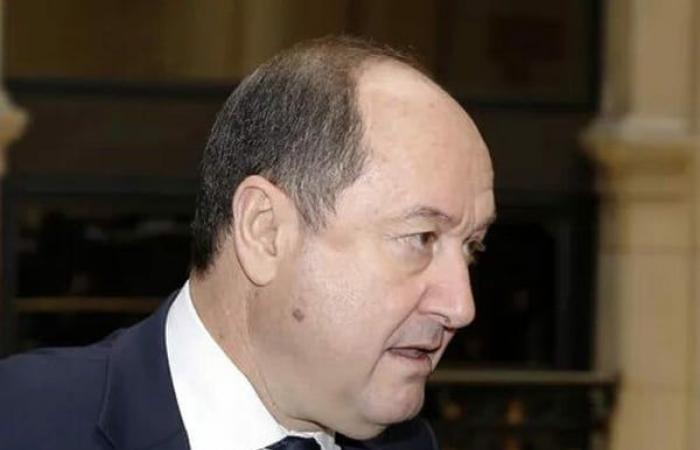
Par
AFP
Published on
November 13, 2024
The trial of former head of domestic intelligence Bernard Squarcini, suspected of having taken advantage of his police networks to obtain confidential information and privileges for the benefit of private interests, notably the CEO of LVMH, opened on Wednesday in Paris, beginning with the examination of procedural questions.
Alongside the man nicknamed “the Squale”, nine other men are being tried, suspected of having responded to requests from Mr. Squarcini, including the prefect Pierre Lieutaud, at the time number 2 of the National Intelligence Coordinator, and Laurent Marcadier, former magistrate of the Paris Court of Appeal.
Everyone disputes the facts.
The former central director of internal intelligence (DCRI, now DGSI) appears before the criminal court until November 29 for 11 offenses ranging from passive influence peddling to embezzlement of public funds, including compromising the secrecy of the national defense, forgery in public documents or even complicity in violation of professional secrecy.
In this file, he is suspected of having taken advantage of his connections within intelligence and the police in order to obtain information on behalf of private interests – in particular for the boss of the luxury group LVMH, Bernard Arnault.
And this, both during the period when he was boss of the DCRI (2008-2012) and after his reconversion to the private sector in 2012.
Ousted by François Hollande who considered him too close to Nicolas Sarkozy, the former spymaster became boss of a business intelligence consulting company called Kyrnos which worked mainly with LVMH.
The investigating judges distinguished four aspects in their investigations: among them, the attempt to identify in 2008, by the DCRI police officers, the author of an attempted private blackmail to the detriment of Bernard Arnault, denounced by a police officer who became a civil party in the case.
Another part: the incredible espionage of François Ruffin and his newspaper Fakir, between 2013 and 2016.
The journalist, who was filming “Merci Patron”, a satirical film on the world leader in luxury which won the César for best documentary in 2017, worried the group because he planned to disrupt general meetings of the multinational.
Mr. Ruffin, who has since become a deputy, and his lawyers regretted during a press conference on Tuesday the absence of the LVMH group in the dock, referring to “a trial involving the amputation of the head”.
The group is in fact not referred to court since it benefited at the end of 2021 from a public interest judicial agreement, negotiated with the prosecution, to avoid prosecution.
Bernard Arnault cited as a witness
“In the dock, (…) we are missing a Bernard,” Mr. Ruffin said again just before the hearing on Wednesday. “We are missing the principal, the leaders of LVMH, who are the ones who asked Bernard Squarcini and his subcontractors to infiltrate the Fakir newspaper.”
In this context, the MP's defense summoned Mr. Arnault to appear as a witness at the trial. At the start of the hearing, the president of the court Benjamin Blanchet indicated that he had spoken with the lawyer of the LVMH manager, who assured that he “intends to introduce himself”. The president therefore reserved the morning of November 28 for his hearing.
The hearing continued with the examination of procedural questions, the lawyer for one of the defendants having asked to separate the section concerning the espionage of Mr. Ruffin to judge him separately, arguing that he there was “no unity” or “time”, or “place”, and a “totally different legal basis”. This request was rejected.
Mr. Squarcini's defense then requested that this case be referred to the formation of the Council of State specially authorized to judge cases relating to defense secrecy.
“We are asking you nothing less than to judge a sovereign service of the State, to judge its functioning, to know if its processes, its functioning, its uses, it is compatible with the code of criminal procedure”, launched Me Marie-Alix Canu-Bernard, considering that the Council of State was the only “legitimate authority” in this matter.
The court also rejected this request.
Paris, 13 Nov 2024 (AFP) – By Eleonore Dermy
All reproduction and representation rights reserved.
© 2024 Agence France-Presse
All information reproduced in this section (or on this page as the case may be) is protected by intellectual property rights held by AFP. Consequently, none of this information may be reproduced, modified, rebroadcast, translated, commercially exploited or reused in any way without the prior written consent of AFP. AFP cannot be held responsible for delays, errors, omissions which cannot be excluded, nor for the consequences of actions or transactions carried out on the basis of this information.





